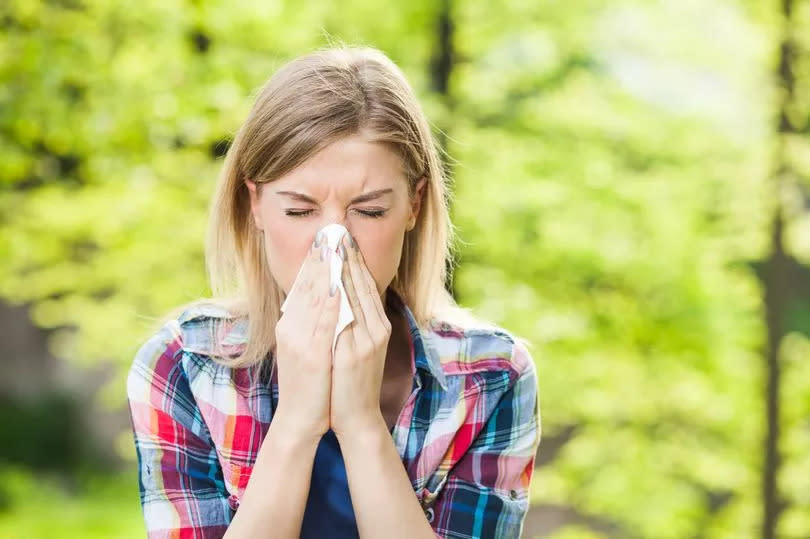Driving rules for anyone who has hay fever and uses medication - and when you can be fined

Pollen levels have been very high across the UK recently and are expected to remain high, bringing misery to people who have hay fever.
However, many people may be unsure of the rules when it comes to driving after taking hay fever medication. It may be tempting to reach for your antihistamines as pollen counts rise. But drivers are being warned that their choice of medication can have legal implications, reports Birmingham Live.
Antihistamines can provide much needed relief for allergy sufferers, The Sun reports. But side effects can include drowsiness so it's important to know the rules around driving when taking them.
It can be against the law to drive with legal drugs in your system if it impairs your driving. Many hay fever medications - particularly older antihistamines such as chlorpheniramine - can cause drowsiness, which can impact your ability to drive.
But there are non-drowsy alternatives which include the active ingredients cetirizine, desloratadine, fexofenadine or levocetirizine. These can be taken to alleviate hay fever symptoms.
You should ask your GP or pharmacist if you are unsure about driving while taking antihistamines. Ben Pitcher, car expert and Owner of DPF Experts, said: "While taking hayfever medication before driving might alleviate your hayfever symptoms, this could also result in a fine. Although relatively harmless, antihistamines are classified as pharmaceutical drugs and can cause drowsiness, affecting your ability to drive."
Can you be fined for taking antihistamines while driving?
You can be fined for driving while impaired by any substance if it affects your ability to drive safely and this includes antihistamines. Mr Pitcher said: "Driving under the influence of any drug, including over-the-counter medications, is illegal if it impairs your abilities and can be considered ‘drug-driving’.
"This can result in a one-year driving ban and an unlimited fine or even six months in jail in the most severe cases." Driving while having antihistamines in your body could lead to a fine of up to £1,000 and three penalty points on your licence.
The Road Traffic Act 1988 makes it an offence to drive while under the influence of drugs. In the UK, the law prohibits driving under the influence of drugs which impair your driving ability, regardless of whether they are prescribed medications like antihistamines or illegal substances.
If you are stopped by police and they have reason to believe you are impaired by drugs, they can conduct roadside tests. Always consult a healthcare professional or pharmacist about your medication and its potential effects on driving. You should also read the information leaflet provided with your medication and follow any warnings about driving or operating machinery.

 Yahoo News
Yahoo News 
